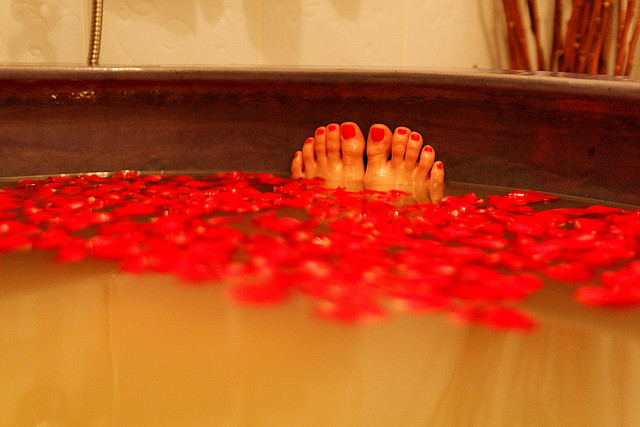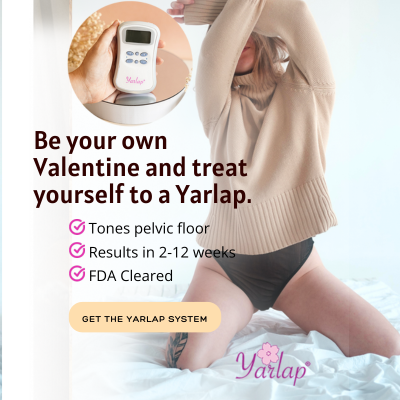
Setbacks and sufferings seem to resurface during the holidays.
Painful memories combined with difficult family members, end-of-year deadlines, and social functions’ forced frivolity can make this time of year challenging even for normally nonplussed people.
I have friends who’ve lost loved ones, suffered through miserable breakups, lost their jobs, and struggled through other catastrophes that made 2014, as one person put it, “one heck of a challenging year.
Stress does more than make us miserable. Anyone who bombed a presentation or whose boss reprimanded them and then they nose-dive into a big plate of peppermint bark brownies knows firsthand how stress can make us fat. One study found psychosocial stress, whether real or imagined, contributed to weight gain.
Hormonal imbalances underlie many of these problems. Take cortisol, which should be highest in the morning and gradually taper. Chronically elevated levels of this stress hormone increase cravings, break down muscle, and store fat. One study found stress-induced cortisol secretion could increase our risk for obesity and chronic disease.
We also know being constantly stressed makes us sick, and indeed, a meta-analysis of 300 studies over three decades found chronic stress could dampen our immune system.
We can’t eliminate stress, but we can learn to weather the storms and curveballs life throws our way with grace. These strategies can help us reduce stress levels and find a little more holiday cheer.
1. Find Non-Food Rewards
When we’re stressed, we don’t crave wild salmon or grass- fed beef. We crave sugar. Researchers at the University of South Florida found that when people are stressed, they crave foods that are higher in sugar and fat.
Ironically, sugar actually stresses your body further, shooting it full of short-term energy, sending your hormones into a spin cycle, and causing your blood sugar to spike and then plummet. So our go-to crutch actually leaves us more jittery and crankier than before. Not to mention that it causes weight gain, fatigue, brain fog and hormonal imbalances.
When we’re tempted by chocolate fudge cheesecake or whatever our dietary deviation might be, it helps to find some non-edible gratification—a hot bath, a tea date with our best friend, or volunteering.
2. Exercise Intelligently
Studies show stress impairs your efforts to stay physically active. The opposite also occurs: exercise helps reduces stress. Nobody has hours to spend in a gym or aerobics class, especially during the holidays. The idea of scheduling a two-hour period to workout only exacerbates our stress levels! That’s why I love burst training, which one study defines as “repeatedly exercising at a high intensity for 30 seconds to several minutes, separated by 1-5 minutes of [low-intensity] exercise.” With burst training, we can knock out a stress-busting, fat-burning workout in about 20 minutes.
3. Sleep Sufficiently
On a practical level, sleep deprivation makes us an over-caffeinated mess cursing at traffic and stressing because we’ll be late for work. Chronic stress, in turn, cuts into our sleep. Among other problems, studies show chronic stress and sleep loss increase our risk for depression and other mood disorders. Another study found a single night of tossing and turning can imbalance our hormone insulin, leading to insulin resistance and diabetes.
When we make time for seven to nine hours of high quality, uninterrupted sleep every night, we find ourselves more productive and capable of rolling with whatever stress the following day throws at us.
4. Mindfully Relax
We pride ourselves on long workdays, 60-hour workweeks, and an overall faster-more mentality. The consequences show up in our health and around our waistlines.
Schedule mindfulness relaxation techniques like yoga or meditation and practice them daily. One study shows a massage could lower cortisol while boosting our feel-good neurotransmitters serotonin and dopamine. Another study among the elderly, found acupuncture could reduce stress and boost lymphocyte production.
Studies also show regularly practicing Transcendental Meditation (TM) can be effective against chronic stress. Calming nutrients can also help reduce stress. Dr. Mark Hyman calls magnesium an “antidote to stress, the most powerful relaxation mineral available, and it can help improve your sleep.”
What coping mechanisms do you utilize to reduce stress levels during the holidays? Share yours below.
References
ES Epel, et al., “Stress and body shape: stress-induced cortisol secretion is consistently greater among women with central fat,” Psychosomatic Medicine 62, no 5 (2000): 623-32.
T Field, et al., “Cortisol decreases and serotonin and dopamine increase following massage therapy,” The International Journal of Neuroscience 115, no 10 (2005): 1397-413.
JL Harding, et al., “Psychosocial stress is positively associated with body mass index gain over 5 years: evidence from the longitudinal AusDiab study,” Obesity (Silver Spring) 22, no 1 (2014): 277-86.
K Heritage, “Study links sugar intake to stress,” The Oracle: University of South Florida, last updated February 9, 2010. (Page 341).
CR MacLean, et al., “Effects of the Transcendental Meditation program on adaptive mechanisms: changes in hormone levels and responses to stress after 4 months of practice,” Psychoneuroendocrinology 22, no 4 (1997): 277-95.
TS Pavão, et al., “Acupuncture is effective to attenuate stress and stimulate lymphocyte proliferation in the elderly,” Neuroscience Letters 484, no 1 (2010):47-50.
V Roman, et al., “Differential effects of chronic partial sleep deprivation and stress on serotonin-1A and muscarinic acetylcholine receptor sensitivity,” Journal of Sleep Research 15, no 4 (2006): 386-94.
SC Segerstrom and GE Miller, “Psychological stress and the human immune system: a meta-analytic study of 30 years of inquiry,” Psychological Bulletin 130, no 4 (2004): 601030.
T Shiraev and G Barclay, “Evidence based exercise – clinical benefits of high intensity interval training,” Australian Family Physician 41, no 12 (2012): 960-2.
K Spiegel, et al., “Sleep loss: a novel risk factor for insulin resistance and Type 2 diabetes,” Journal of Applied Physiology (1985) 99, no 5 (2005): 2008-19.
MA Stults-Kolehmainen MA and R Sinha, “The effects of stress on physical activity and exercise,” Sports Medicine 44, no 1 (2014): 81-121.
A Tsatsoulis A and S Fountoulakis, “The protective role of exercise on stress system dysregulation and comorbidities,” Annals of the New York Academy of Science 1083 (2006): 196-213.
Love elephant and want to go steady?
Sign up for our (curated) daily and weekly newsletters!
Author: JJ Virgin
Apprentice Editor: Kim Haas, Editor: Catherine Monkman
Photo: Dennis Wong via Flickr










Read 1 comment and reply